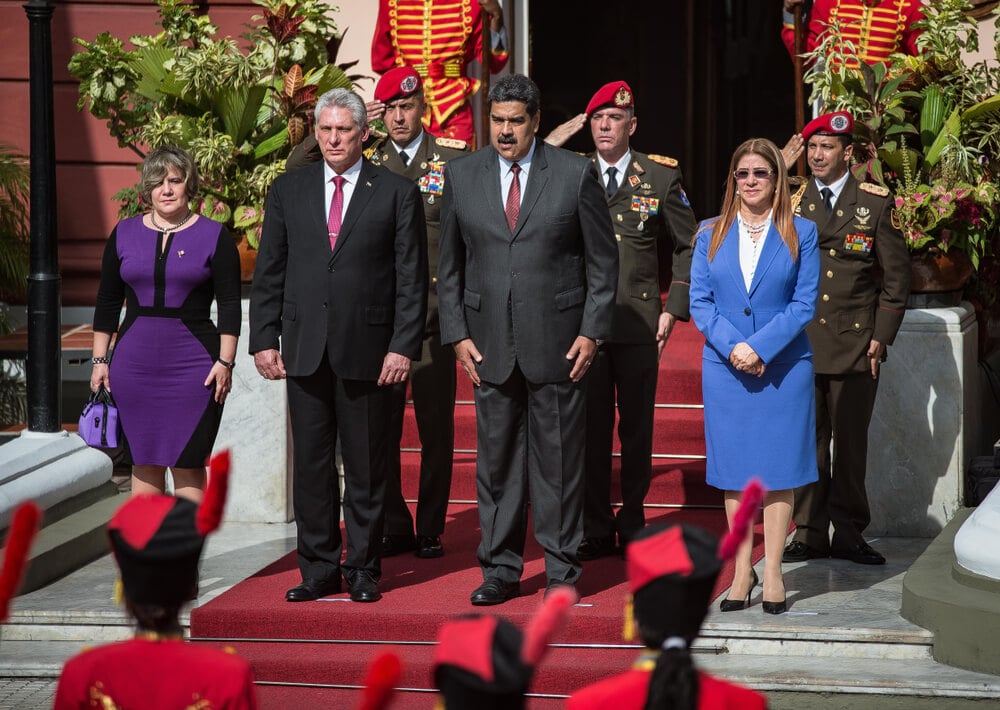Cuban authorities managed to restore electricity supply only to some parts of the capital Havana, mainly hospitals, after an unprecedented collapse of the energy system that left the entire island without power last Friday.
That's little consolation for the 10 million Cubans who, after years of power shortages, face a complete blackout across the country. The authorities' claims of restoring a stable supply are unconvincing, as the energy collapse is not an incident but a long-standing rule without a solution.
"We are not in an endless abyss," Cuban Prime Minister Manuel Marrero Cruz said in a TV address last Thursday that was delayed due to "technical difficulties," certainly due to problems with electricity.
Then draconian austerity measures were announced, according to which practically the entire island economy was closed, along with schools, while hospitals relied on generators to maintain a minimum of work.
The communist authorities have provided numerous excuses for the last Friday collapse in their official statements. US economic sanctions top their list, serving as the official Havana's traditional justification for the dire economic situation in the country.
But there are also the consequences of the recent hurricanes, which, among other things, kept tankers at sea with much-needed oil for the operation of power plants, as well as the usual poor state of the country's energy infrastructure.
The nation and the regime before the abyss
The Cuban PM's reference to the "abyss" is a realistic description of the overall state of the economy and social sphere, but it also reflects his subconscious fear that a revolutionary government, which has ruled the country for 65 years, might find itself before the "abyss."
The energy collapse that occurred last Friday, for which the Cuban authorities have not yet provided a solution, could potentially trigger mass discontent—a phenomenon most feared by the authorities in Havana.
Cubans took to the streets in large numbers for justified reasons, but nowhere near as strong as the collapse of the electricity supply last Friday
Mass protests over unbearable poverty and shortages of food, electricity, and water have shaken the authorities several times in the last three years. Cubans took to the streets in large numbers for justified reasons, but nowhere near as strong as the collapse of the electricity supply last Friday.
Due to widespread shortages and the COVID-19 epidemic's lockdown, thousands of Cubans protested nationwide in July 2021, but the authorities suppressed the demonstrations and arrested at least 1,500 people, many of whom are still in prison.
They responded in the same way in March of this year, during mass protests in Santiago, where people chanted "power and food." Even then, the authorities accused the US of inciting the protests and again repressed the demonstrators.
No solution for systemic problems
However, the official Havana has not provided a systemic response to the multiple crises in the country. The trade blockade and budget deficit are making it increasingly difficult for Cuba to obtain oil, which accounts for almost 90% of its electricity production capacity.
Dependence on imports from Venezuela is huge, ranging between half and two-thirds of the daily needs of more than 120,000 barrels. However, the Venezuelan crisis is reducing deliveries by more than a third from 2020 to 2023. Also, Havana cannot maintain its oil facilities due to sanctions.
 The Venezuelan crisis is reducing deliveries of oil by more than a third from 2020 to 2023 - The Presidents of Cuba and Venezuela Miguel Diaz-Canel and Nicolas Maduro
The Venezuelan crisis is reducing deliveries of oil by more than a third from 2020 to 2023 - The Presidents of Cuba and Venezuela Miguel Diaz-Canel and Nicolas Maduro
The way out that Cuba is trying to find in the supply from Russia, its former main supplier, is still only at the level of agreements and promises; it is not fully implemented.
Until the middle of this year, there were no significant deliveries of Russian oil to Cuba, following smaller deliveries in 2022. Russian sources mentioned that the governments of the two countries concluded an agreement on the delivery of about 1.6 million metric tonnes of crude oil and derivatives annually.
However, even if implemented, this source would meet only a third of Cuba's import needs. Russia announced during the summer that it was "considering" the construction of a refinery in Cuba, but these plans are still in the early stages, so Havana cannot rely on them to solve the chronic energy crisis.
The culmination of the crisis
There is no indication that the tourism sector, which formally contributes around 10% to GDP but contributes significantly more as an unreported source of income for many residents, could increase.
Unlike the global market, Cuba has not recovered from the collapse of tourism during the COVID-19 pandemic. Even if the projected arrival of approximately 3 million tourists this year materialises, which is challenging to predict, it would still represent approximately a million fewer visits than in the pre-Covid period of 2018 and 2019.
There are no quick and efficient solutions in sight that would eliminate at least some of the problems
The authorities in Havana are at the heart of an economic and political crisis that is escalating with the collapse of the energy system. There are no quick and efficient solutions in sight that would eliminate at least some of the problems because they are deeply interwoven into the autocratic nature of the state system that manages the national economy.
Protests and other forms of mass discontent in Cuba have not been surprising in recent years, and their renewal would be a logical reaction of the population to the total energy collapse that the nation has faced.